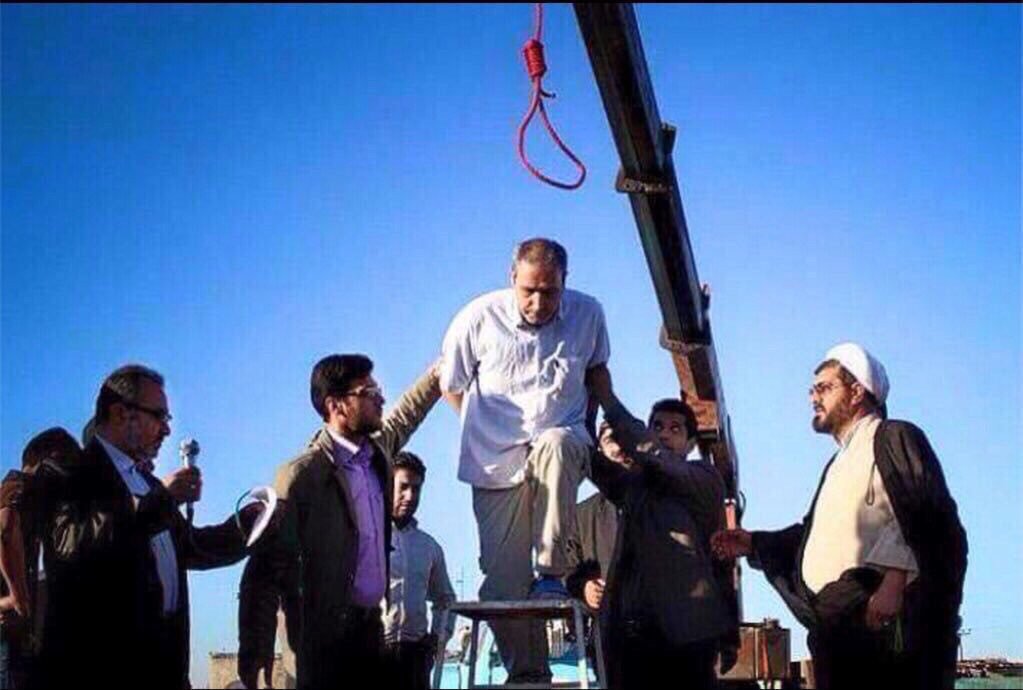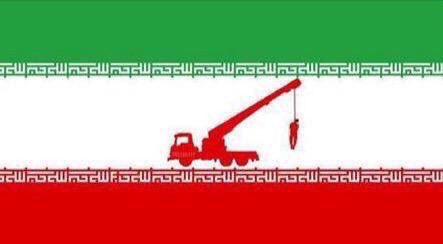Iran's notorious record
SPA
Published — Thursday 21 January 2016
Last update 21 January 2016 12:39 am
Saudi Arabia’s Ministry of Foreign Affairs stated on Tuesday that since the Iranian revolution in 1979, Iran has established a record of spreading sedition, unrest and chaos in the region in an effort to undermine the region’s security and stability, and in complete disregard for international law, agreements, treaties, and moral principles. During the same period, the Kingdom has maintained a policy of restraint in spite of having suffered from the consequences of Iran’s continued aggressive policies. — SPA
1982
•96 foreigners kidnapped in Lebanon, including 25 Americans, in what is known as “the hostage crisis,” which lasted for10 years. Most of kidnappings were carried out by Hezbollah and other Iranian-backed groups.
1983
•Hezbollah bombs US Embassy in Beirut, killing 63 people.
•Ismail Askari, an Iranian national, carries out a suicide bombing at the US Marine Corps barracks in Beirut, killing 241 American servicemen.
•Hezbollah sends a suicide truck bomber to the French Army barracks in Beirut, killing 64 French civilian and military personnel.
•Members of Hezbollah and Hezbut Dawa carry out a number of attacks, including attacks on the US and French embassies in Kuwait, an oil refinery, and a residential neighborhood, resulting in the deaths
of five people.
•Iran attacks Kuwaiti oil tankers in the Gulf. Subsequently, Kuwait tankers are reflagged as American and provided escort
by US warships.
1984
•Hezbollah attacks US Embassy annex in east Beirut, resulting in 24 deaths.
1985
•Several Gulf soldiers and citizens are killed when an attempt is made to bomb the motorcade of Kuwaiti Emir Sheikh Jaber Al-Ahmad Al-Sabah.
•Iranian regime masterminds the hijacking of TWA flight; 39 American passengers are held captive for weeks.
1986
•Iran asks its pilgrims to carry out riots during Haj, which results in a stampede and the deaths of 300 people.
1987
•Hezbollah Al-Hejaz sets fire to an oil facility in Ras Tanura on the east coast of Saudi Arabia.
•The pro-Iranian organization attacks Saudi Petrochemical Company (SADAF) facility in Jubail, in eastern Saudi Arabia.
•Iranians murder Saudi diplomat Mosaed Al-Ghamdi in Tehran.
•Saudi Arabia foils attempts by Iranian pilgrims to smuggle explosives into the Kingdom.
•Saudi Embassy in Tehran attacked and Saudi diplomat Reza Abdul Mohsen Al-Nozha is assaulted and taken by Iranian Revolutionary Guards. He is released following negotiations between Saudi Arabia and Iran.
1989
•Iran assassinates Iranian Kurdistan Democratic Party leader Abdul Rahman Ghassemlou and his deputy Abdullah Azar in Vienna.
•Iranian regime kidnaps and kills a number of American diplomats in Lebanon.
1990
•Iranian regime is involved in the assassination in Thailand of Saudi diplomats Abdullah Al-Malki, Abdullah Al-Bassri, Fahad Al-Bahli and Ahmed Al-Saif (between 1989 and 1990).
1991
•Iranian Revolutionary Guards murder Shapour Bakhtiar, the last Prime Minister of Iran under Shah Mohammad Reza Pahlavi, in France.
1992
•Iran assassinates Kurdistan Democratic Party Secretary-General Sadegh Sharafkandi, his assistants Fattah Abdoulie, Homayoun Ardalan and Nuri Dechrda, in Berlin.
•Iranian regime is involved in the bombing of Mykonos restaurant in Berlin. The German Federal Prosecutor issues an arrest warrant against Iran’s Minister of Intelligence Ali Fallahian for planning and supervising the restaurant bombing.
1994
•Iran is involved in Buenos Aires bombings in 1994, which result in the deaths of 85 people. (In 2003, British police arrested Hade Pour Soleimanpour, Iran’s former ambassador to Argentina, for conspiring to carry out the attack.)
•Venezuelan Ministry of Foreign Affairs issues a press release stating that four Iranian diplomats were involved in a covert operation at Simon Bolivar International Airport in Caracas that was aimed at forcing Iranian refugees to return to their country.
1996
•Iran is involved in the Alkhobar bombings in 1996, which is carried out by the pro-Iranian organization Hezbollah Al-Hijaz, resulting in the deaths of 120 people, including 19 Americans. Iran provided protection to the offenders, including Ahmed Al-Moghassil, a Saudi citizen who was arrested in Lebanon in 2015 carrying an Iranian passport. The terrorist attacks were directed by the Iranian military attache in Bahrain. The perpetrators were trained in both Lebanon and Iran. The explosives were smuggled from Lebanon to Saudi Arabia by Hezbollah.
2001
•Iran provides a safe haven for a number of Al-Qaeda leaders since 2001, including Saad bin Laden, Saif Al-Adel and others after Sept. 11, 2001. It refuses to hand Al-Qaeda leaders over to Saudi Arabia despite the Kingdom’s continuous requests.
•Iran is involved in the bombings of three residential compounds in Riyadh in 2003, which killed many Saudi citizens and foreign residents, including Americans, at the instruction of one of the Al-Qaeda leaders in Iran.
2003
•Bahrain arrests members of a new terrorist cell that was receiving support from the Iranian Revolutionary Guards and Hezbollah in Lebanon, Kuwait and the UAE.
•Iranian regime supports Shiite elements in Iraq by forming political parties and militias loyal to Iran. These activities result in the deaths of some 4,400 US service members and tens of thousands of civilians, particularly Sunni Arabs. Former US Ambassador to Iraq James Jeffrey said that the Americans who died were killed in operations carried out by groups backed directly by Iran.
2006
•Washington says Iran supports the Taliban against US forces in Afghanistan and that it has armed groups different ethnic and sectarian groups to strike the US near Iran’s borders. It says that the Iranian regime has offered a reward of $1,000 for every American soldier killed in Afghanistan.
2007
•US Senate passes a resolution calling the Iranian Revolutionary Guards a terrorist organization.
2011
•Iran is involved in the assassination of Saudi diplomat Hassan Al-Qahtani in Karachi.
•US foils an attempt to assassinate the Saudi ambassador to the US and proves the involvement of the Iranian regime. The criminal complaint unveiled in the federal court in New York identifies two people involved in the plot: Mansour Arbabsear, who is arrested and imprisoned for 25 years, and Gholam Shakuri, an officer in the Iranian Revolutionary Guard, who is currently in Iran and wanted by the US judiciary.
2012
•Hackers from Iran’s Revolutionary Guard carry out cyber-attacks against oil and gas companies in Saudi Arabia and the Gulf. US Defense Secretary Leon Panetta describes the cyber-attacks as among the most destructive in the private sector. President Obama’s administration says it is aware that this is the work of the Iranian government.
•A plot to assassinate US officials and diplomats in Baku, the capital of Azerbaijan, is discovered. A Shiite group in Azerbaijan, backed by Iran and working under the instructions of the Revolutionary Guard, is behind the plot.
2016
•Kuwaiti criminal court sentences two members to death. One has Iranian citizenship. They are charged with carrying out acts that jeopardize the unity and security of Kuwait, and with actively collaborating with Iran and Hezbollah to carry out acts of hostility.
•Iran admits officially through the commander of the Iranian Revolutionary Guards, Mohammad Ali Jafari, that it has 200,000 Iranian fighters outside the country — in Syria, Iraq, Afghanistan, Pakistan and Yemen.
•Iranian regime refuses to protect Saudi diplomatic facilities in Tehran and Mashhad.
Iran's notorious record | Arab News







